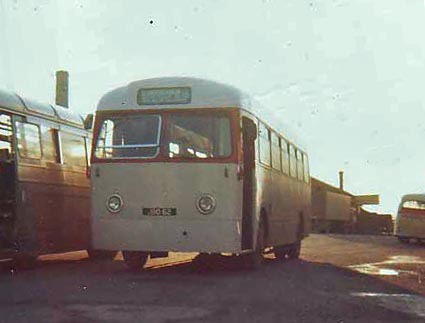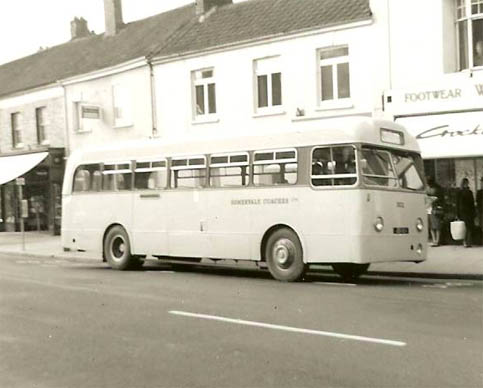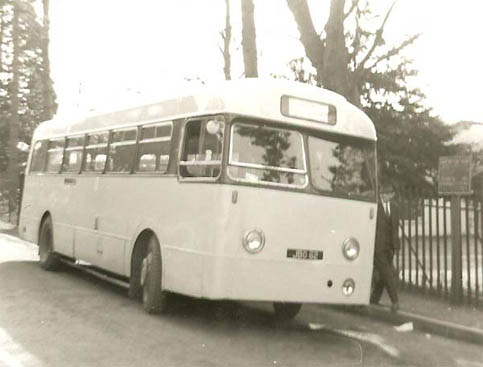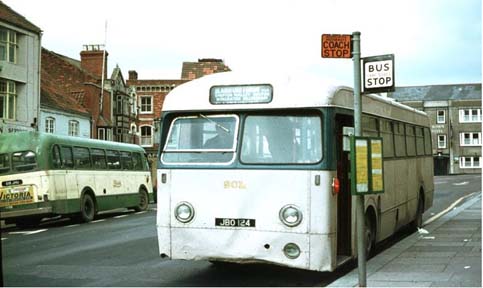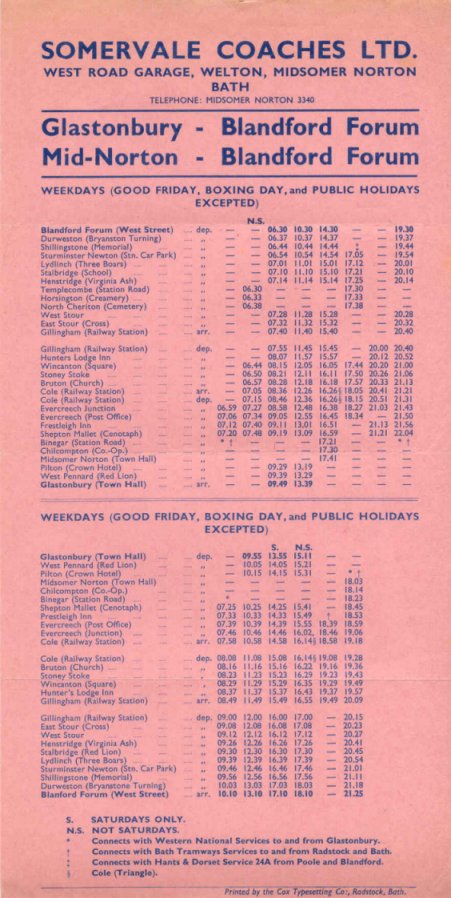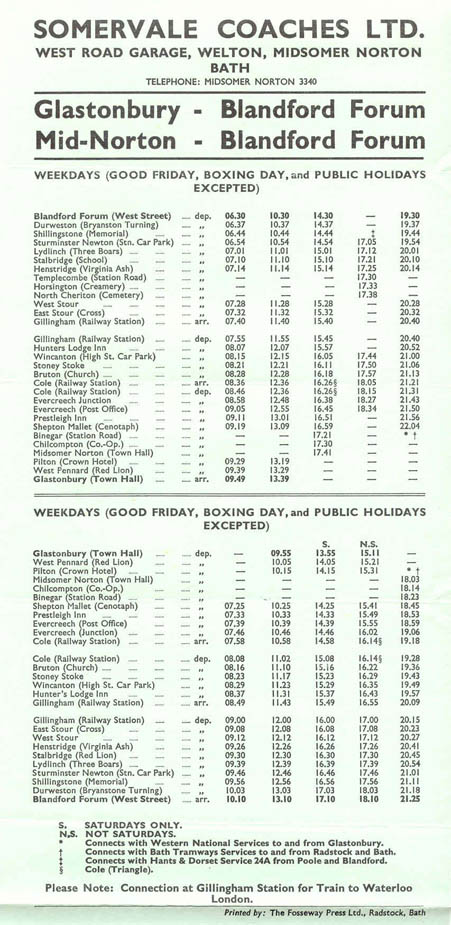The bus services
operated by Somervale Coaches were introduced
on
7th
March 1966
after the long contested closure of the Somerset & Dorset rail
line.
There were several alterations to bus services in the area at this
time,
including a new Hants & Dorset service 24A from Poole to
Blandford, Sturminster Newton and Stalbridge. Also the
existing service between Blandford and Sturminster Newton operated by Bere Regis & District
as part of their Blandford - Woolland route was improved with the
addition of workspeople journeys to the existing shoppers journeys.
The longest of the replacement services (some 52 miles in
length) was
the route operated by Somervale Coaches running the full distance
four times a day between
Blandford in Dorset - via Sturminster Newton, Gillingham, Wincanton,
Bruton, Evercreech and Shepton Mallet - to Glastonbury in
Somerset. One afternoon journey went to Midsomer Norton instead
of
Glastonbury and some northbound journeys operated via Templecombe
instead of Gillingham. Rail connections were available at
Gillingham station, on the line from London via Salisbury to Exeter.
Somervale
was the
trading name of the Chivers family, coach
operators of Welton near Midsomer Norton. Thanks to Christopher John
Chivers we know that the coach company was started by his father
William George Derrick Chivers in 1946. Working in the garage were
Christopher's uncles Fred, Jim, and Arthur. In later years from
1972 his brother Paul had his own coach business in the Bath area
(Olympic Coachways). In 1964 the Chivers business was registered as a
company Somervale Coaches Ltd but they later reverted to trading under
the Chivers family name
again, and in 1990 James Chivers handed the coach business over to his
son Andy (Christopher's cousin).
Two mauve liveried
ex-Western Welsh Tiger Cubs with Weymann bodies provided the mainstay
of the bus service, with JBO62 working from the Welton depot whilst
JBO124 was out-stationed at the southern end at Blandford Forum in
Dorset. A third Tiger Cub for the route was KDB696 (ex-North
Western Road Car) in a yellow and red livery; it was known to the
Somervale drivers as "The Yellow Submarine". The bus that was
based in Blandford was worked with two drivers on
alternate
early and late shifts forming the 0630 and 1430 departures northwards
from
there, returning southwards from Glastonbury at 0955 and Midsomer
Norton at 1803 respectively. The 1430 service went to
Midsomer rather than Glastonbury
to make contact with the home depot and to refuel. The other
'trunk' journeys (0725 from Shepton and 1511 from Glastonbury,
returning north from Blandford at 1030 and 1930) plus the
'shorts' were worked from the Midsomer
Norton end. With a route of this length each of the two Tiger
Cubs was clocking up ten thousand miles a month.
Somervale had come
late to the party as it had
originally been proposed that Wakes Services
(Sparkford) Ltd should
operate this route, and it had originally been intended that the
Somerset & Dorset rail line should close earlier on 3rd January
1966.
This
was also D for Diesel Day when steam was to have ceased to operate on
the Western Region. However Wakes withdrew their application to
run the
route at short notice and it had to be retendered. The
last-minute withdrawal of applications for these routes by Wakes led to
the postponement of the rail closure,
originally planned for January 3rd. Wakes withdrew their applications
because the hearing had been fixed for December 15-17, which the
company claimed did not leave them time to organize the bus services,
if granted. This took a
little time and a minimal interim
rail service continued to run until March 1966 and the start of
the
Somervale service. This meant, inter alia, that steam operation
on Western Region was similarly prolonged. (When closure of the rail
line was initially discussed in 1963 Commercial Motor reported that the
proposal at the time was that the Southern National company would
operate the route from Blandford to Glastonbury).
It
is not generally remembered that Somervale also ran another S&D
rail
replacement bus service, a minibus from Shoscombe Vale to White Hill
where it connected with Bath Tramway's own rail replacement route, the
56A to Bath. This was in fact the only route that Somervale had
originally bid for. A few miles east of Midsomer Norton in the
hamlet of Single Hill was Shoscombe and Single Hill Halt, a small
railway station on the Somerset and Dorset line serving small villages
between Wellow and Radstock, about seven miles south of Bath.
The rail replacement
bus operations by Somervale
continued until 5th February 1972 when the subsidies for the services
ceased after six years. One of Somervale's two drivers based in
Blandford was Ray Cuff and when his
employers stopped running the route he
started on his own account, purchasing KDB696 and JBO124 from
them. From 7th
February 1972 Ray
provided shopping-type services over parts of the former Somervale
route, primarily on Tuesdays and Fridays, and also added a Saturday
service to and from Yeovil, as well as a Wednesday service to
Gillingham and a Monday service to Sturminster Newton on market
day.
|
